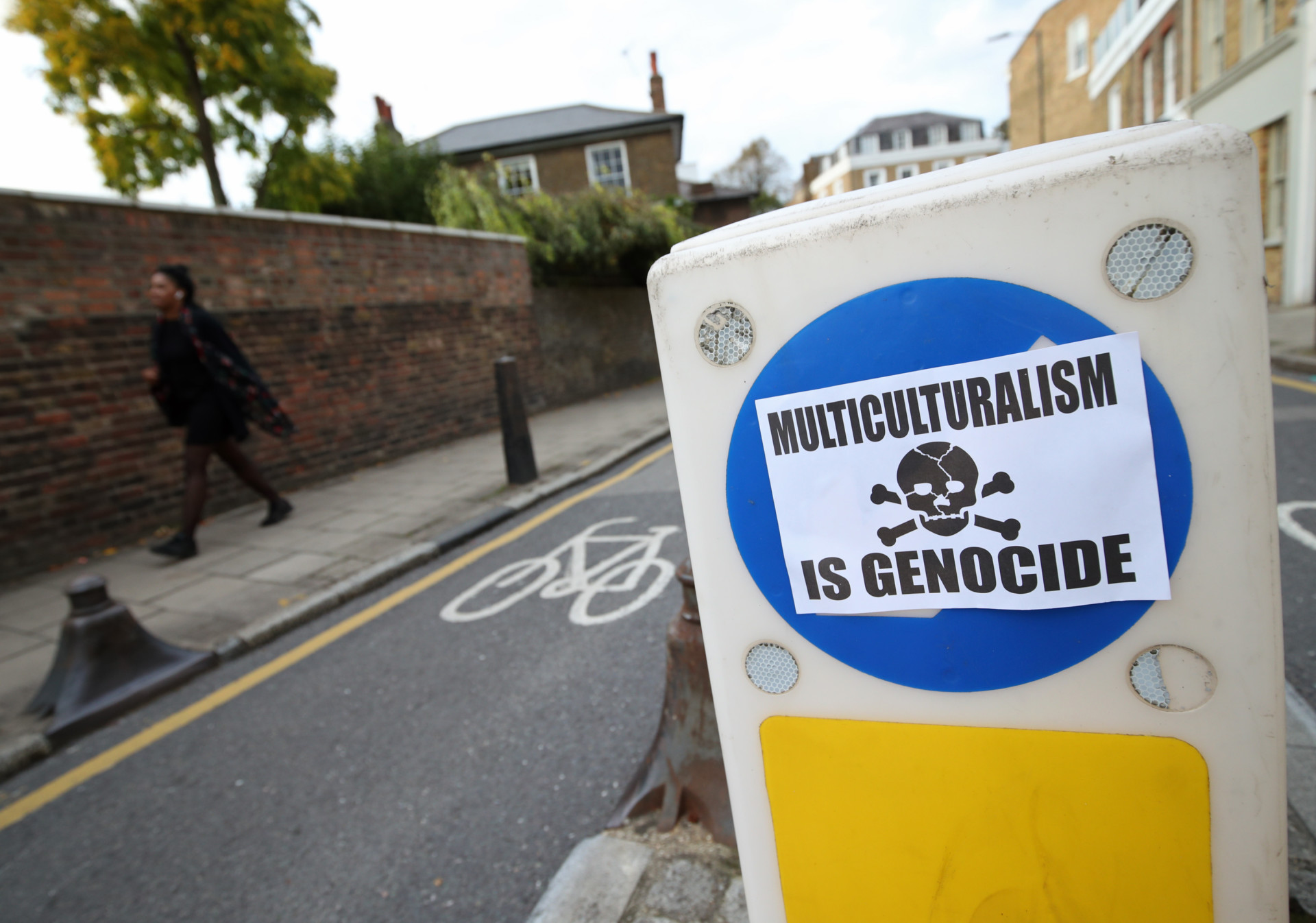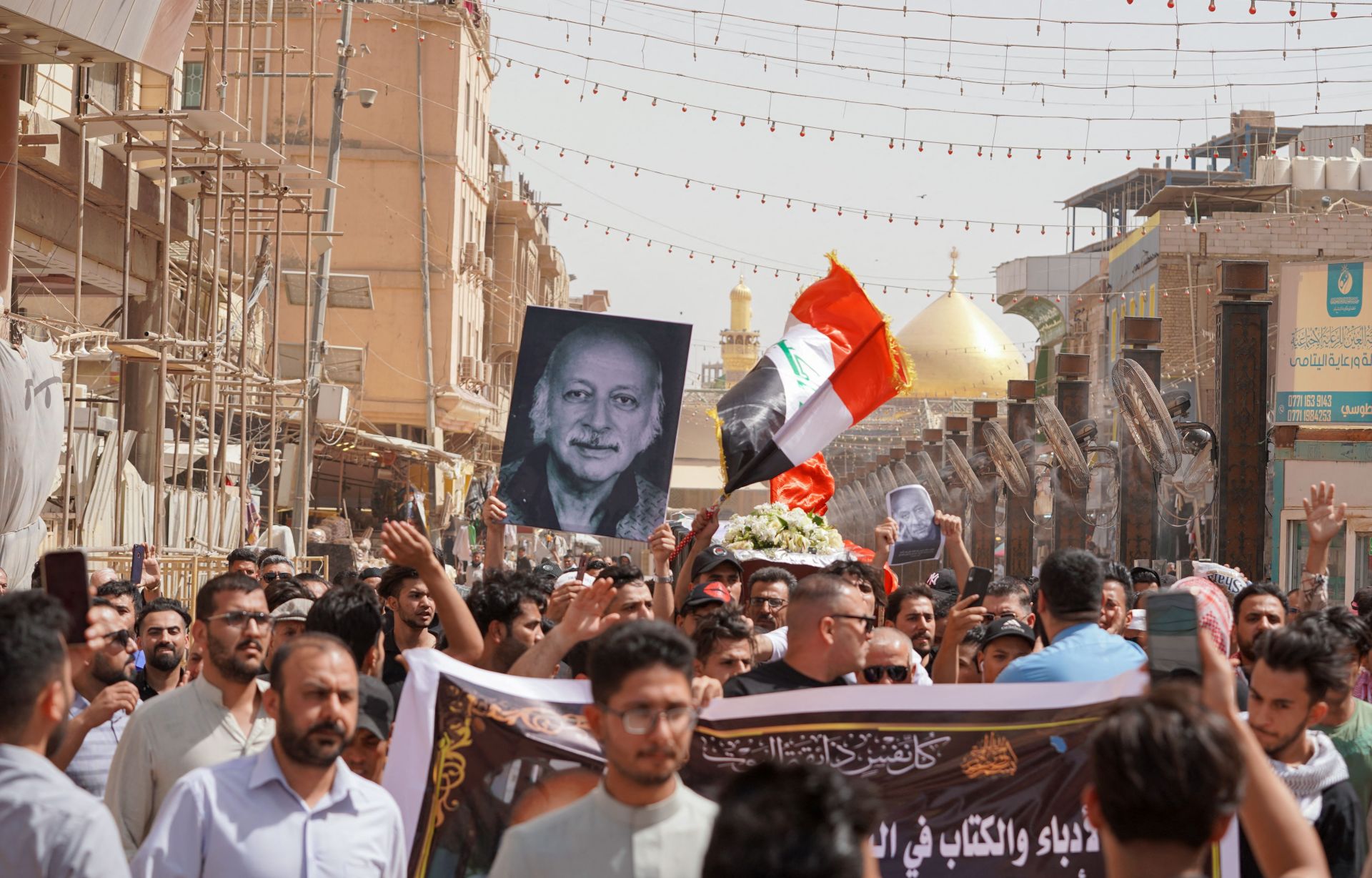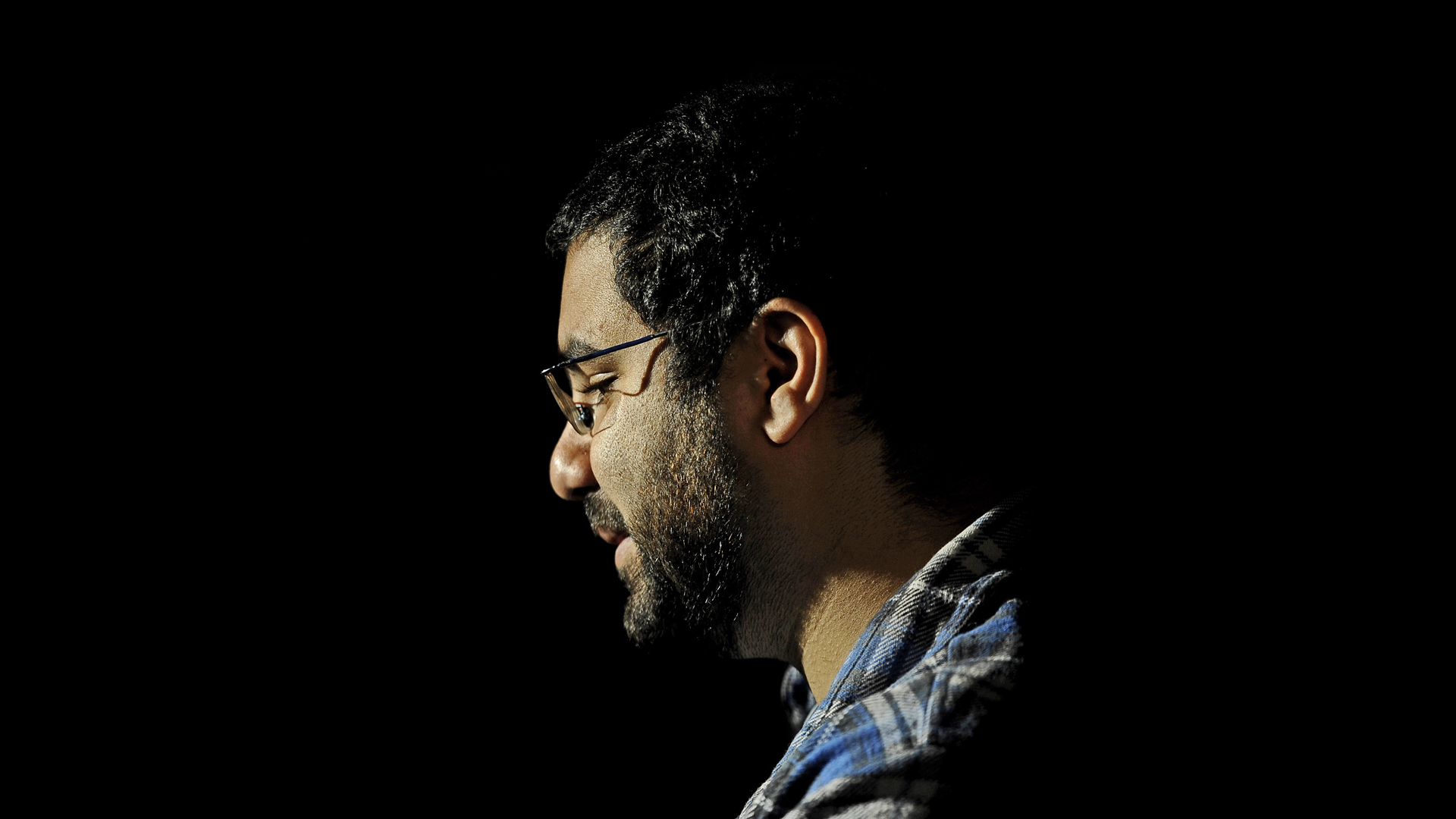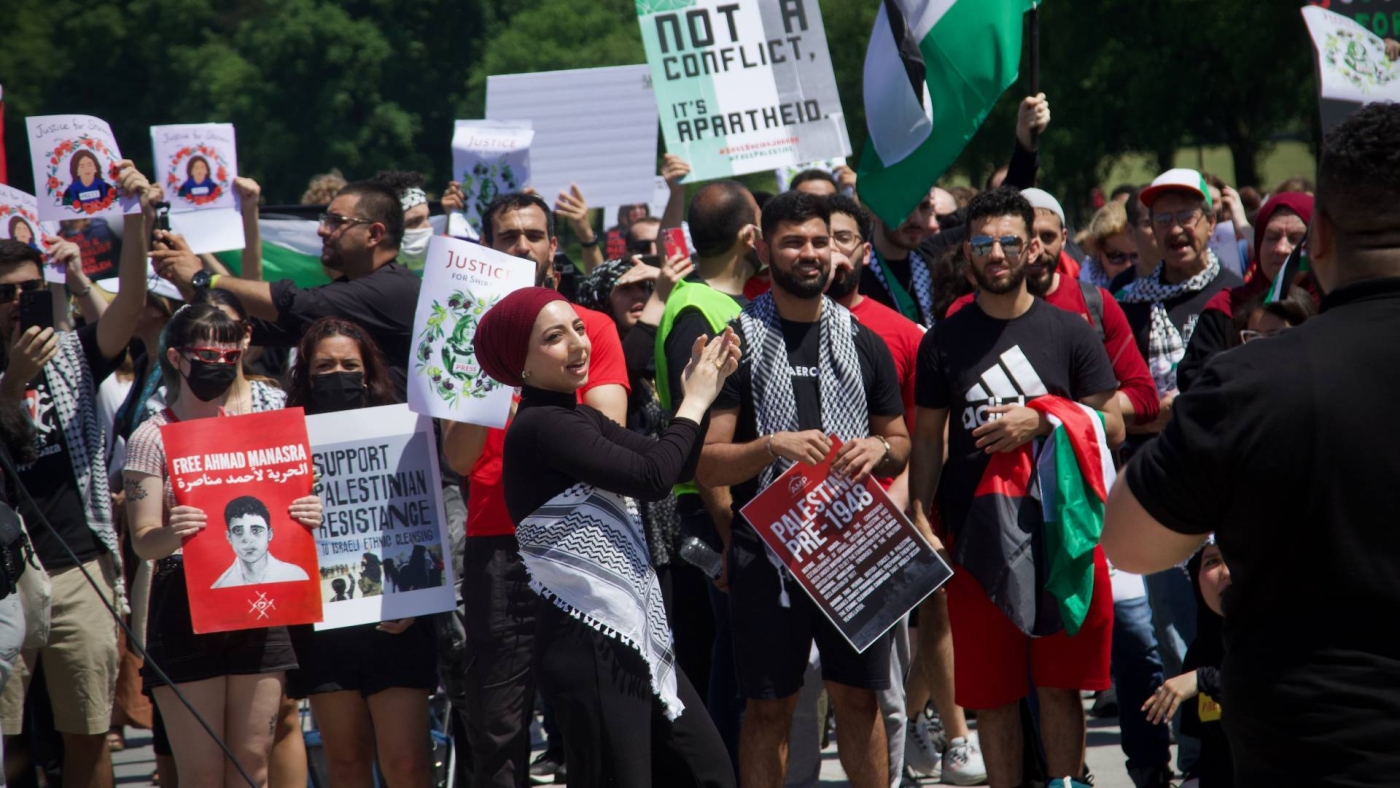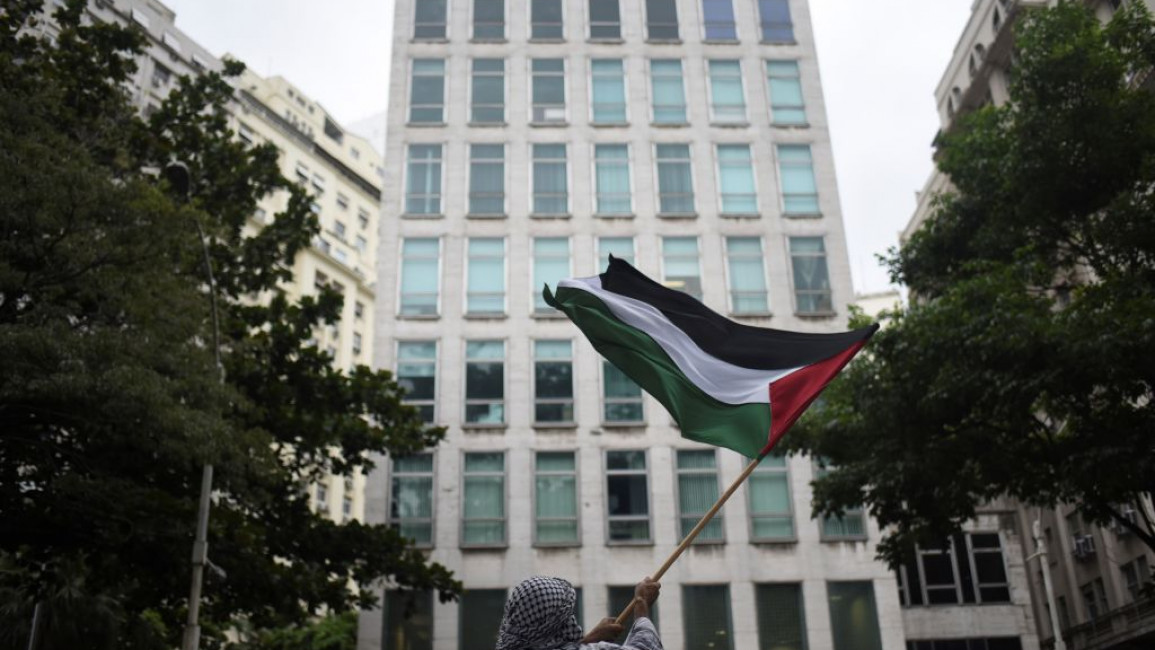The “Great Replacement” theory is behind the far right’s worst acts of terrorism, from Christchurch to El Paso. It has its roots in the Balkans, where it inspired Serb Nationalists to genocide
Jasmin Mujanović
When Ratko Mladic’s Serb nationalist forces entered the Srebrenica enclave in eastern Bosnia and Herzegovina on July 11, 1995, the general of the self-styled “Army of the Republika Srpska” took a moment to speak to an accompanying camera crew.
“Here we are,” he says solemnly, “on July 11, 1995, in Serbian Srebrenica.” What followed was Mladic’s rationale for the extermination campaign that was unfolding in the city, the culmination of the nearly four-year-long Bosnian Genocide orchestrated by Mladic and his political masters, Slobodan Milosevic and Radovan Karadzic: “We gift this town to the Serb people. Finally, the moment has come, after the uprising against the Dahijas, for us to take revenge against the Turks in this region.”
Even those who had followed the news of the Bosnian War but were unfamiliar with Serb nationalist lexicon would have struggled to make sense of Mladic’s pronouncements. But this was the clearly articulated thesis of the Belgrade-orchestrated war and genocide in Bosnia, and it is a sentiment that has continued to percolate through to the present – not just in the Balkans but, increasingly, throughout the West.
The essence of Mladic’s project is known to the contemporary, Western far right as the “Great Replacement” theory: the idea that Muslims are waging demographic warfare against white, Christian Europeans, seeking to outbreed and replace them and their civilization. And defending “Western civilization,” as such, requires a confrontation with the “invaders.” Or as the Canadian reactionary Mark Steyn put it in a 2006 New York Times bestseller:
“In a democratic age, you can’t buck demography – except through civil war. The Serbs figured that out, as other Continentals will in the years ahead: If you cannot outbreed the enemy, cull ‘em. The problem that Europe faces is that Bosnia’s demographic profile is now the model for the entire continent.”
Though Mladic and his associates did not use the term Great Replacement (it was only coined by the French neo-fascist writer Renaud Camus in 2010), their paranoid, genocidal campaign against the Bosniak community in Bosnia (and later ethnic Albanians in Kosovo) and the accompanying narratives justifying these pogroms electrified far-right extremists in the West. In a sense, Mladic and his cohort were the true authors of the Great Replacement doctrine – and all its accompanying bloodletting.
Today, the Bosnian Genocide is a rhetorical and conceptual pillar of the Western far right, an example of the kinds of regimes and policies they embrace and aspire to replicate. In untangling the origins of this coupling, a still more disturbing reality emerges: Bosnia’s recent past – the dissolution of Yugoslavia, the ensuing war, and the accompanying genocide – is what many contemporaries on the Western radical right imagine, and aspire to reenact, in their own societies.
Mladic’s oratory in Srebrenica referenced the events of the First Serbian Uprising (1804-1813), during which the leaders of the incipient Serbian state sought to overthrow the Dahijas – the largely autonomous, Ottoman-backed military regime that governed the then Sanjak of Smederevo. In the canon of Serbian nationalist thought, the struggle against the Dahijas (a South Slavic transfiguration of the Ottoman Turkish word dayı) signified the rebirth of the Serbian nation, whose statehood and autonomy, they argued, had been extinguished by the 15th century conquest of Southeastern Europe by the Ottomans.
This is a Christian parable of the (re)birth of a nation. And as in D.W. Griffith’s “The Birth of a Nation,” the central conceit is the eternal struggle between a noble warrior race and a savage, racialized Other. In the standard telling of the former, the 1389 Battle of Kosovo – a bloody but indecisive clash between the invading Ottomans and a coalition of Serbian, Bosnian, Croatian, and Albanian lords – marked the metaphorical death of the medieval Serbian state. Prince Lazar, who led the Serbian forces, and the knight Milos Obilic, who in the oral tradition is said to have killed Murad I on the battlefield but may in reality be a mythic figure invented after the fact, subsequently assumed Christ-like characters. They became folk heroes who sacrificed themselves to preserve the Serbian people and their state in the Kingdom of Heaven, even as it was conquered on Earth.
The prophecy of the second coming of the Serbian polity was then fulfilled in the 19th century as the Ottoman hold on the Balkans slipped, and a modern Serbian state emerged and quickly began vying for political and military supremacy in the region. But left unaddressed for both 19th and 20th century Serbian nationalists was the lingering problem of “the Turks,” that is, the indigenous Muslim populations of the Balkans – primarily the Bosniaks of Bosnia and the Albanians of Kosovo (often referred in the discourses of the era as Arnauti, another Ottoman era term for region’s ethnic Albanians).
In the century between the First Serbian Uprising and the start of World War I, a de facto (if not always systemic) method took root to address this problem: Local Muslim populations, whether Slavic, Albanian, or Turkish, were to be expelled and/or exterminated wherever the new Serbian authorities managed to establish even a momentary political claim. The process was emulated by the new Greek, Bulgarian, and Romanian authorities as well. The exact figures are disputed or otherwise difficult to establish, but, conservatively, hundreds of thousands of Muslims left the area during this period – primarily resettling in modern-day Turkey – and at least that many were killed. But both figures are likely in the millions. Taken in conjunction with the horrors of the Armenian Genocide, the period marking the end of the Ottoman Empire is likely one of the bloodiest in modern European history, a horrific and sustained unmixing of peoples.
But the new state system that emerged in Southeastern and Eastern Europe in the wake of the Ottoman era was weak. The new nationalist regimes were perennially unsatisfied with the boundaries of their territories and devoted the brunt of their meager resources to war making rather than the development of local economies or civil societies. By the time the First World War began in 1914, most of the region had already seen two devastating years of fighting and atrocities during the Balkan Wars of 1912-1914. After 1918, the long-promised unification of the South Slavs produced the Kingdom of Serbs, Croats, and Slovenes, a union so ensnared by crisis and factionalism that its brief experiment with parliamentary democracy lasted barely a decade before it was aborted by the autocratic Serbian crown. By the time of the Axis invasion of what was then called the Kingdom of Yugoslavia, the country was effectively on the brink of civil war.
The second Yugoslav state, the one formed by Josip Broz Tito’s communists after the Second World War, lasted twice as long as its predecessor, but it too collapsed under the weight of authoritarian and sectarian animus. Once more, it was the regime in Belgrade, this time led by the soon-to-be genocidaire Slobodan Milosevic, that whipped up Serbian nationalism to carve out a “Greater Serbia” from the carcass of the Yugoslav federation. Fusing medieval myths with sectarian grievances from the 20th century and disseminating it through modern propaganda techniques, Milosevic, an erstwhile and middling communist apparatchik, presented himself as the new Lazar.
The four subsequent wars he launched – in Slovenia, Croatia, Bosnia, and Kosovo – spanned the entire decade of the 1990s, resulting in the deaths of nearly 150,000 people, with two-thirds of these occurring during the Bosnian War. The concurrent Bosnian Genocide was not merely a byproduct of Milosevic’s project but, in fact, its primary objective. The creation of the so-called Republika Srpska in Bosnia and Herzegovina (and the Republika Srpska Karjina in Croatia) – the breakaway territories self-declared by local proxies of the Belgrade regime, similar to the Russian-occupied “People’s Republics” in eastern Ukraine today – was explicitly premised on the wholesale removal and extermination of the non-Serb populations of these areas; in many cases, these populations constituted the majority in the targeted region.
There was no motive for Milosevic’s policies in Bosnia, or the policies of his proxies, other than the imposition of ethnic homogeneity through violence and terror. These were both the aim and the method for achieving these objectives. But the outward face of the project – embodied by the telegenic figures of Karadzic and Milosevic, who both spoke fluent English – was pure equivocation. Though both Karadzic and Milosevic routinely denied the systematic nature of their genocide, they never denied its necessity. Here they remained categorical: The Bosniaks, like the Kosovar Albanians, were an abscess that had to be removed from the body of Christian Europe. It was ugly going, to be sure, but they were the knights on the ramparts “guarding” the whole of the continent. In the fevered swamps of the Serbian tabloids, the language was even more explicit: Serbia was Byzantium restored, the cradle of Christian civilization, taking its glorious vengeance on the Turks, the Moors, and the whole of the Muslim world.
From the onset, this narrative made inroads into segments of the West. Robert Kaplan’s 1993 “Balkan Ghosts” did not embrace the Bosnian Genocide but, like Steyn, he framed it as a historical inevitability; the triumph of what he infamously called “ancient ethnic hatreds.” Kaplan’s framing was formative, profoundly shaping the views of then-U.S. President Bill Clinton in (initially) rejecting the possibility of American or international intervention in the war. After all, what business did Washington have in meddling in this primordial bloodletting? British and French officials of the time were even more blunt in their remarks to Clinton: The events in Bosnia were “painful” but also the “necessary restoration of Christian Europe.”
Such attitudes were widespread, especially in Europe. The Austrian novelist and playwright Peter Handke, for instance, explicitly defended Milosevic and his war effort. As soon as the Bosnian War had ended, Handke toured the killing fields and partied with the killers. He was a guest of honor at Milosevic’s funeral and delivered his eulogy. Such abasement notwithstanding, he was awarded the Nobel Prize for Literature in 2019. Living Marxism, the magazine of the U.K.-based Revolutionary Communist Party, falsely claimed that photographs from the Trnopolje and Omarska concentration camps were staged. One of the magazine’s editors, Claire Fox, eventually went on to join the Brexit Party (now Reform UK) and today sits as a member of the House of Lords, the upper house of the U.K. Parliament.
While the Clinton administration finally – and begrudgingly – intervened in the war, European governments remained largely unmoved even as they watched the killings in Srebrenica unfold in real time.
After 9/11, preexisting revisionist and negationist discourses about Bosnia began to aggressively percolate through a newly invigorated Western far right. The attacks on the Twin Towers and the Pentagon recast the nature of Milosevic and Karadzic’s project; to Western reactionaries it became a prophetic war, led by men who recognized the true threat of “militant Islam” and thus the need for a true clash of civilizations. That the cause of Bosnian independence was overwhelmingly secular, led by a multiethnic coalition of Bosnians of all ethnicities and religions, including non-nationalist Serbs, of course, never entered this discourse.
By the 2010s, Bosnian Genocide denial and the valorization of Serb nationalist war criminals became a staple of Western far-right discourses – a pillar of their ideological and political lexicon like the Confederacy, the Third Reich, or the African apartheid regimes. It soon started featuring in the manifestos of far-right terrorists.
Anders Breivik, the terrorist who executed the attacks in Norway in 2011, made nearly 1,000 mentions of the Yugoslav Wars in his meandering manifesto. Eric Frein, who orchestrated the 2014 attack on the Pennsylvania State Police barracks, frequently cosplayed in Serb nationalist uniforms. And Brenton Tarrant, sentenced to life imprisonment for the 2019 Christchurch mosque killings, covered his rifles and munitions in the names of Serb and Montenegrin historical figures and livestreamed himself playing a Serb nationalist ballad glorifying Karadzic’s genocide from the Bosnian War. And while the 2019 El Paso terrorist did not cite Serb nationalist motifs, his manifesto credits Tarrant and the Great Replacement as his primary inspirations, directing his ire at Latinos and Hispanics rather than Muslims.
Among the far right, “kebab” is used as a derogatory term for Muslims, and Tarrant referred to himself as a “kebab removalist” in his manifesto.
In the sewers of the online far right, Serb nationalist themes are even more prominent. The song Tarrant played on his way to massacre the congregants in Christchurch is a well-known meme among extremists and gamers. The original is titled “Karadžiću, vodi Srbe svoje” (“Karadzic, lead your Serbs”) but it is known online primarily as the “Remove Kebab Song” or “Serbia Strong.” Among the far right, “kebab” is used as a derogatory term for Muslims, and Tarrant referred to himself as a “kebab removalist” in his manifesto. A cursory search for the song on platforms like YouTube reveals millions of views and hundreds of thousands of comments, most of them in English. Those willing to dive deeper into the underground forums and message boards of the far right will easily discover their intimate familiarity with the Bosnian Genocide and the deeds of Serb nationalist genocidaires.
As the Western far right gains political currency in Europe and the U.S., it is likely that their interest in the wars in Bosnia and Kosovo will become more pronounced. The turn toward paranoid identity politics and demographic fetishism among ostensibly center-right parties on both sides of the Atlantic readily comports to the ideological discourses developed by Serb nationalists during the 1980s and 1990s. Their current encounters with similar “traditionalist” and “patriotic” discourses emanating from Russia – and the Kremlin’s court intellectuals like Aleksandr Dugin or the late faux-dissident Eduard Limonov (a close associate of Karadzic) – will also serve to further disseminate Serb nationalist ideas, as Moscow is the primary international patron of the revisionist regimes in Belgrade and Bosnia’s Republika Srpska.
Following the sacking of the U.S. Capitol by an extremist mob on Jan. 6, 2021, the ascendancy of far-right movements in the established democracies has finally landed as, arguably, the central national security issue facing the West. Confronting the QAnon cult has required that researchers and law enforcement decode an obscurantist ideological and political lexicon; the same will be required in recognizing the extent to which Serb nationalist ideas have penetrated many of these same extremist circles.
Beyond the immediate security concerns, however, the Bosnian Genocide should serve as a critical lesson for democratic societies everywhere. Genocides are not sudden eruptions of freewheeling violence. They are meticulously organized, administratively complex undertakings. They require project managers, bureaucrats, and executioners. Above all, they require ideological justifications. The ideas and discourses of the architects of the Bosnian Genocide have already taken root in the West, contributing to many deaths. Failure to recognize this runs the risk of letting Bosnia’s recent past shape our collective future.
